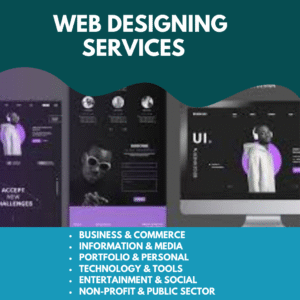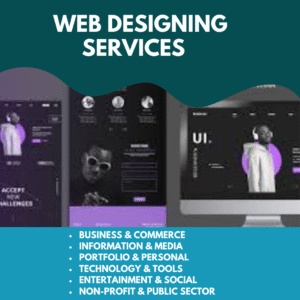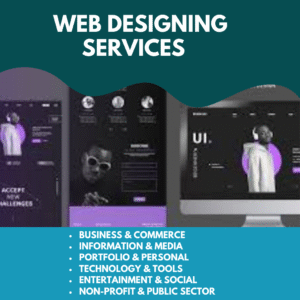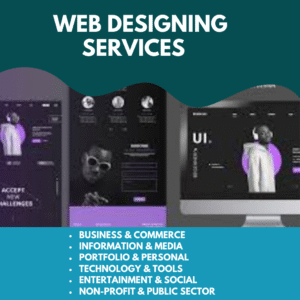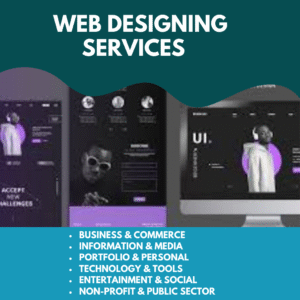Empowering Digital Growth: The Impact of Professional Web Applications Services
In the modern business landscape, a strong online presence is not just an option — it’s a necessity. Companies, startups, and enterprises rely on web applications to streamline operations, enhance customer engagement, and drive growth. A professionally developed web application transforms business ideas into functional, scalable, and user-friendly digital solutions.
This is where Web Applications Services come into play. By leveraging modern technologies, frameworks, and expert development practices, these services deliver robust, secure, and high-performance applications that meet the unique needs of businesses in any industry.
This article explores the significance, features, benefits, development process, and best practices for web applications, offering insights for businesses aiming to maximize efficiency and digital impact.
What Are Web Applications?
A web application is a software program that runs on a web server and can be accessed through web browsers over the internet. Unlike traditional desktop applications, web applications are platform-independent and accessible from anywhere, anytime.
Common examples include:
-
E-commerce platforms like online stores
-
SaaS tools such as CRM and project management software
-
Banking and financial portals
-
Interactive dashboards and analytics tools
-
Booking and reservation systems
A well-designed web application combines functionality, security, and an intuitive user experience, making it a valuable asset for any organization.
Why Businesses Invest in Web Applications Services
Investing in professional web application services provides businesses with competitive advantages, operational efficiency, and enhanced customer satisfaction. Key reasons include:
1. Accessibility and Convenience
Web applications are accessible across devices and operating systems, enabling seamless interaction for both employees and customers.
2. Scalability
A professionally built web application can grow with your business, handling increasing traffic, users, and data without compromising performance.
3. Security
Expert developers integrate advanced security protocols to protect sensitive data from cyber threats and ensure compliance with regulations.
4. Cost-Effectiveness
Web applications eliminate the need for installing software on multiple devices, reducing maintenance costs and enabling centralized updates.
5. Enhanced User Experience
Interactive interfaces, responsive design, and intuitive navigation engage users and improve satisfaction.
6. Real-Time Data Management
Web applications allow for instant data updates, analytics, and reporting, empowering informed decision-making.
7. Customization and Flexibility
Services can tailor web applications to meet specific business needs, ensuring every feature aligns with operational goals.
The Web Applications Development Process
Professional web application services follow a structured approach to ensure reliability, performance, and scalability:
1. Requirement Analysis
Developers and stakeholders collaborate to define objectives, functionality, user roles, and technical requirements.
2. Planning and Architecture
A blueprint is created, including technology stack, database schema, UI/UX design, and system architecture.
3. Design and Prototyping
Interactive prototypes and mockups are developed to visualize the user interface and navigation flow.
4. Development
Using modern frameworks and programming languages (like JavaScript, Python, PHP, or Ruby on Rails), developers build the application with modular and scalable code.
5. Testing and Quality Assurance
Comprehensive testing is performed to identify and fix bugs, security vulnerabilities, and performance bottlenecks.
6. Deployment
The application is launched on web servers or cloud platforms, making it accessible to users.
7. Maintenance and Updates
Ongoing support ensures the application remains secure, updated, and optimized for performance.
Benefits of Professional Web Application Services
Engaging expert web application services ensures maximum ROI and operational efficiency. Key benefits include:
-
Enhanced Performance: Optimized code ensures fast loading and responsiveness.
-
Security Compliance: Applications follow best practices to safeguard data.
-
Custom Solutions: Tailored features for specific business requirements.
-
Cross-Platform Accessibility: Works seamlessly on desktops, tablets, and mobile devices.
-
Integration Capabilities: Connects with other software, APIs, and third-party tools.
-
Scalable Architecture: Supports future growth and increased traffic.
-
Expert Support: Technical guidance and troubleshooting throughout the application lifecycle.
Best Practices for Successful Web Applications
To achieve the best outcomes, businesses should adopt these best practices:
1. Focus on User Experience (UX)
Prioritize intuitive design, clear navigation, and responsive layouts to keep users engaged.
2. Ensure Data Security
Incorporate SSL encryption, secure authentication, and regular security audits to protect sensitive information.
3. Optimize Performance
Implement caching, optimized code, and content delivery networks (CDNs) for faster load times.
4. Choose the Right Technology Stack
Select frameworks and languages suitable for the application’s complexity, scalability, and business goals.
5. Test Thoroughly
Conduct unit tests, integration tests, and user acceptance tests to ensure the application works flawlessly.
6. Plan for Scalability
Design modular architecture to handle increasing users, traffic, and data over time.
7. Continuous Monitoring and Updates
Regularly monitor performance, security, and functionality to keep the application optimized and secure.
Industries Benefiting from Web Applications
Web applications serve diverse sectors, including:
-
E-commerce: Online stores, payment gateways, and inventory management.
-
Healthcare: Patient portals, appointment systems, and telemedicine apps.
-
Education: Online learning platforms, student management systems, and virtual classrooms.
-
Finance: Banking applications, investment dashboards, and accounting tools.
-
Travel & Hospitality: Booking systems, travel planning apps, and customer management.
The Future of Web Applications
The web application landscape continues to evolve, offering exciting trends:
-
Progressive Web Apps (PWAs): Combines web and mobile app features for enhanced user experience.
-
AI Integration: Intelligent automation, chatbots, and personalized experiences.
-
Cloud-Based Web Apps: Improved scalability, reliability, and remote accessibility.
-
Enhanced Security Protocols: Advanced encryption, multi-factor authentication, and compliance management.
-
API-Driven Development: Seamless integration with third-party services and platforms.
Conclusion
A Web Applications Service is an essential tool for businesses seeking growth, efficiency, and enhanced user engagement. By leveraging professional development services, organizations gain customized, secure, and high-performance applications that adapt to evolving business needs.
Investing in expert web application services empowers businesses to maximize productivity, streamline operations, and deliver exceptional digital experiences to their customers. Whether you are a startup, SME, or enterprise, a well-designed web application is a strategic asset that drives long-term success.
Read more > https://datahome.solutions/empowering-digital-growth-the-impact-of-professional-web-applications-services/
#WebApplications #DigitalSolutions #BusinessGrowth #CustomWebApps #SecureWebDevelopment #TechInnovation #ScalableApps
